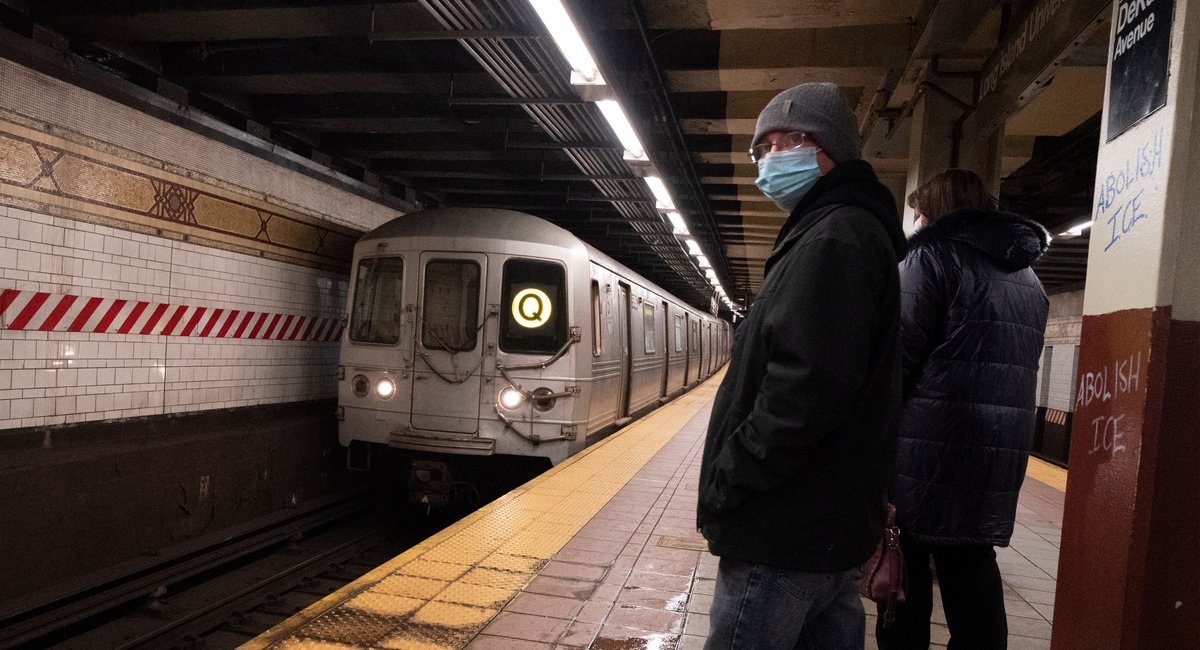That means there’s no vaccine mandate at the MTA, which employs 67,000 people, many who work in New York City. Even before omicron hit, the agency had 700 testing locations set up for its workers around the city.
While the MTA believes 80% of its workforce has received at least one shot of the vaccine, a recent breakdown by agencies shows some have higher rates than others. The subways and buses division, which employs the most people, has a 73% vaccination rate, while Long Island Rail Road workers have the lowest, at 68%.
Governor Kathy Hochul has, so far, declined to require that all state employees must be vaccinated.
At a subway yard in Upper Manhattan, maintenance supervisor David Noven told Gothamist that out of hundreds of people that work there, he suspected about half are out this week.
“Very little is getting done,” Noven said.
Noven himself started feeling sick Wednesday and tested positive.
He followed MTA protocols and called the agency’s COVID hotline to report his results, but said he had to wait on hold for over two hours. Once he got through, a person from the call center, who’s not a medical professional, advised him to return to work on Monday.
“I’m a little concerned about going back to work on Monday,” Noven said. “I have the vaccine and the booster…but there are many people that work with who haven’t had the vaccine.”
Lieber said this week calls to the COVID hotline went up 300-400%, so the MTA asked the third-party that runs the hotline to hire more workers to reduce the wait time. And he said he’s confident that the MTA’s return to work protocols will ensure service returns to normal soon.
Gothamist obtained the byzantine guide for workers to determine whether they should return to work:
